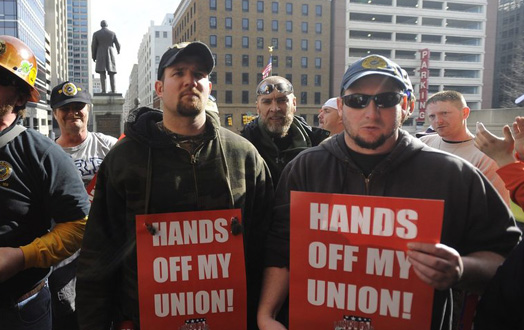
May Day is a day to celebrate the working class and recall the many decades of struggle for workers’ rights. A struggle which, as unions know, has not ceased. Around the world, May Day has come to be known as International Workers’ Day, paying homage to the Labor Movement and the lives that were lost when a nationwide strike was called on May 1,1886.
At the state level, Illinois passed a law in 1867 granting an eight-hour workday, but numerous loopholes made it completely ineffective. And in 1869, President Ulysses S. Grant issued a proclamation guaranteeing an eight-hour workday, but the proclamation only applied to government workers, and workdays continued to be largely unregulated by state laws for all other workers. On May 1, 1886, after years of working 12 to 16 hours per day, six days a week, and tired of all the legislative inaction, nearly a half-million workers went on strike demanding an enforced eight-hour workday in America.
Chicago was central to the nationwide strike, with approximately 40,000 striking workers participating in what was documented to be one of many well-coordinated and nonviolent marches. Despite the peaceful strikes, strikebreakers were appearing across the nation, and many had police support. On May 4th, in Chicago’s Haymarket Square, police threw a bomb into a group of strikers, killing eleven, then proceeded to round-up and arrest others, convicting many of conspiracy and sentencing some to death.
The Haymarket Riot and the Haymarket Martyrs, as they came to be known, solidified national support for the workers who struck on May 1, 1886 demanding an eight-hour workday. In 1938, Congress finally passed the Fair Labor Standards Act, limiting the workweek to 44 hours, or 8.8 hours per day for all American workers.
If you are lucky, you may enjoy an eight-hour workday for which you can thank the Labor Movement. But there are many in America, and around the world, who still do not enjoy basic workers’ rights, like an eight-hour workday, safety protections, and equal treatment in the workplace.
In the past century, and most notably in the past few years, May Day, or International Workers’ Day, is a day that has been taken on by anti-war activists, immigrant activists, anti-capitalist activists, and even anarchists. But no matter what cause or movement may use May Day to push its agenda, May Day’s legacy is in the workers who gave their lives, right here in Chicago, because they believed people deserved to be treated with dignity.
And so, the Labor Movement’s distress signal continues around the globe, until the respect for human dignity is a reality for all.

